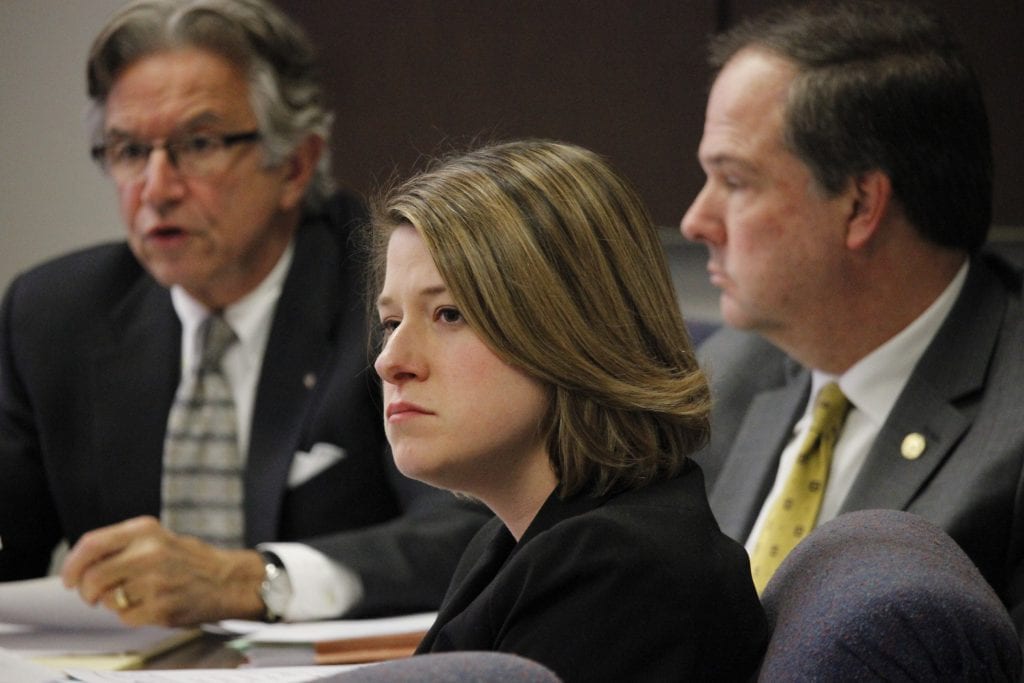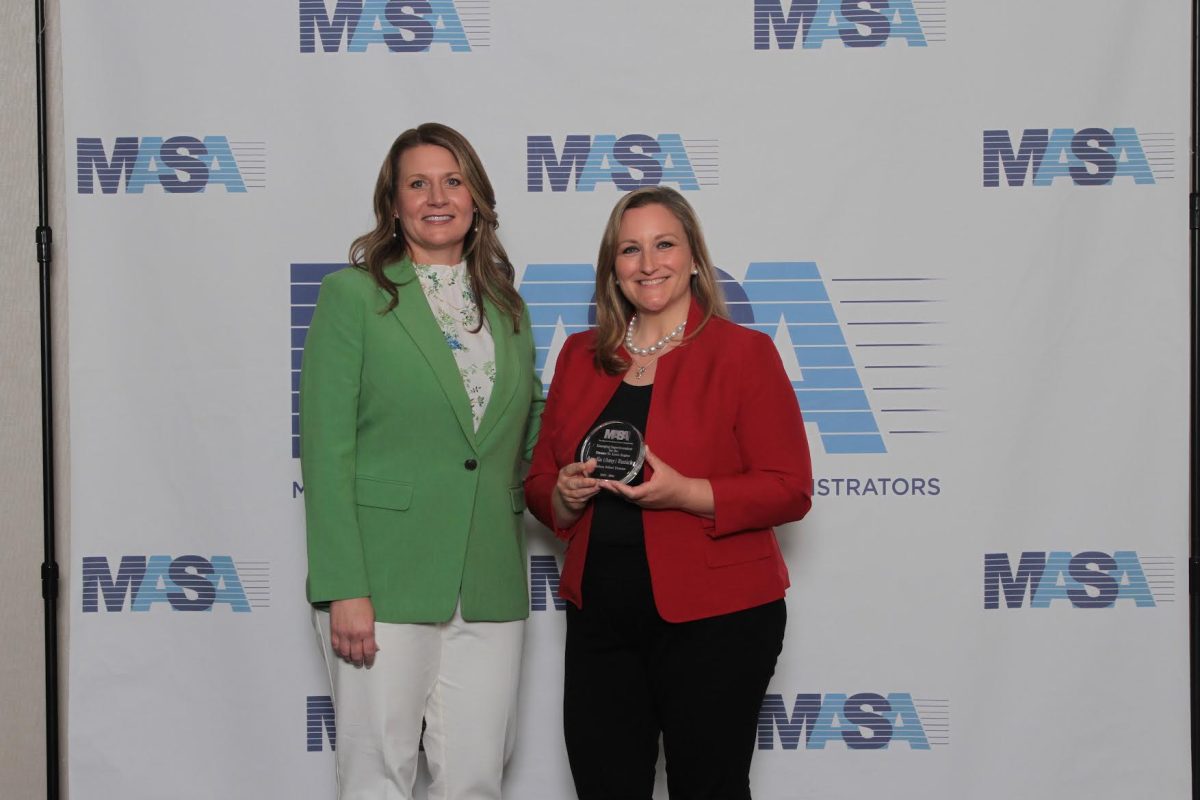By Gloria Lloyd
Staff Reporter
news3@callnewspapers.com
The Mehlville School District’s short-lived foray away from high-school block scheduling went so wrong that it could serve as a cautionary tale of how not to roll out a new program in the future.
That was the verdict of Board of Education members last week as they unanimously voted to revert back to a full block schedule, starting with the second semester in January.
The block schedule is popular with students but costs the district nearly $2 million more a year than a traditional schedule would. Emphasizing the possibility for more innovative classes and student choice, something Superintendent Chris Gaines had seen at other high schools, the Schedule Review Committee recommended last year to move to a flex schedule, which is a combination of block and traditional.
The committee recommended that this school year serve as a transition year with the familiar A and B days of the block schedule but also a C day once a week where all classes met in a traditional schedule. But everyone involved seemed to admit last week that the experiment was a failure.
First, most students hated the C days.
Or at least that’s what the most vocal feedback from students said. A survey returned by half the student body of Oakville High School showed that 70 to 80 percent of students disliked C days and rejected any idea of a traditional schedule, preferring a block schedule.
But Mehlville High School wasn’t surveyed the same way, which means the committee didn’t have the same data on how students there viewed the C days.
MHS did receive negative feedback from students who chose to attend focus groups.
Even if both high schools were surveyed, that data did not necessarily translate to a verdict against the flex schedule, said board member Peggy Hassler, who served on the committee even before she was a board member.
“What it really boils down to is negative feedback on C days, but that’s irrelevant because flex does not include C days,” Hassler said.
And while the perceived backlash from students greatly affected the committee’s decision, perhaps a more pressing reason arose this year when the committee realized that the district’s scheduling software is not able to actually program a flex schedule.
“Can we find out our systems are incompatible before we throw our entire district into chaos?” board member Jamey Murphy asked. “What we did here is torment these students for a semester and change and uproot what happens in our schools, and we gained nothing. It infuriates me.”
The problem started with the process from the beginning, when the committee discounted a traditional schedule entirely without talking much about it, Murphy said. That decision to spend $2 million for a schedule that has no better outcome than traditional came at the same time the district is “not even meeting the basics for some of our students in our middle schools,” he said.
Then the committee hit on a flex schedule as the key, especially because of the ability for some students to choose the repetition of math class every day.
But with that idea imploded, “I don’t think it’s the committee’s fault. I actually have no clue who to blame on this,” Murphy said.
There were warning signs. When the committee visited Parkway West to learn more about the flex schedule, students and teachers seemed to like it but counselors warned that it was a scheduling nightmare, said committee member Matt Phoenix of Mehlville High School.
Even after 20 years with the flex schedule, Parkway West counselors seemed to tell the visiting team from Mehlville to run far away from a flex schedule, Phoenix said.
“The counselors said, ‘It’s a complete and total disaster. We do not like this at all,’” Phoenix said. “If they’re still having problems after 20 years — we were looking for the benefits if we’re going to drag everybody into the mud.”
What seemed like a small item to check off at the beginning of the process became a major stumbling block at the end, the committee noted. Mehlville uses different scheduling software than other schools that have a flex schedule, and Mehlville’s software company never came through with a workable way to incorporate the new schedule.
“It took months for the software company to make it work, almost to the point where we were going to have to lay this out on the gym floor to see it,” Gaines said. “That hurt.”
The template the software company de-signed only resolved 30 percent of schedules for conflicts, which meant high-school counselors would have had to hand fix 70 percent of student schedules for the upcoming year, an almost impossible task.
Study halls to be examined
Mehlville’s block schedule is more expensive than other schools on block because of Mehlville’s built-in study hall for everyone in the school during one of the blocks, called TAP or Teacher Advisory Program at Mehlville High and ANP or Academic Networking Period at Oakville.
Part of the committee’s recommendation to return to block also includes commissioning a new committee to study how TAP and ANP are used.
When Gaines visits the high schools during that block, he sees some students using the time for homework, as intended. But others are on their phones, congregating or just relaxing, which is not what the district wants to see, he said.
“We’ve had people call it, ‘That’s my free time,’” Gaines said. “No, it’s costly time. It’s a big investment on our part. So are we getting bang for the buck?”
Board President Samantha Stormer’s son is a senior at Oakville High School, and she has brought him up many times in the discussion about ANP because he does not use that hour to do his homework.
“My son would be the first to say he doesn’t like C days because he doesn’t utilize his 90-minute blocks, and he likes that,” Stormer said. “He says, ‘That’s my chill-out time, Mom.’”
A possible way to better use the 90-minute study blocks would be for a series of four- to six-week optional classes in which teachers could teach what they’re passionate about, not what they’re assigned to teach, Gaines said.
He cites a Mehlville High teacher who is a veteran spelunker exploring caves in his free time as an example of a teacher who could offer something to students that would fascinate them. Teachers could teach about oceanography, scuba diving, whatever it is that they think may interest their students.
That might encourage even those students who are more interested in “chill-out time” than doing their homework to get involved more in school, Gaines suggested.






























